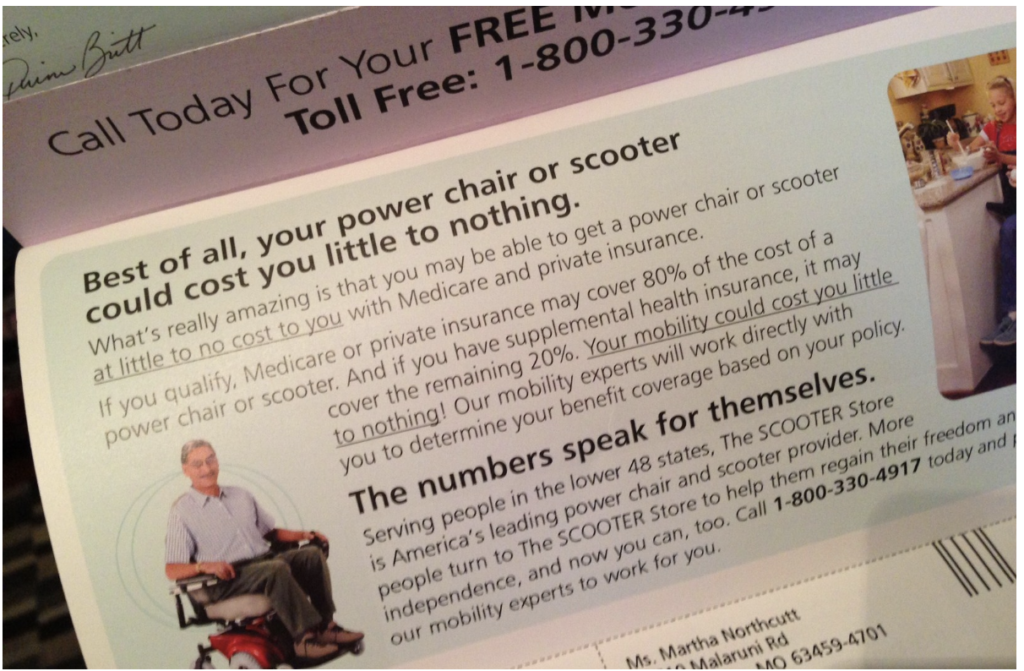The Scooter Store will stay in business, it turns out, after pushing hard for seniors to qualify for power wheelchairs and admitting to fraudulent claims. The Scooter Store continued to operate and continued to push the envelope for “approval” of the medical need for a power wheelchair for seniors, resulting in a raid by federal agents in February of this year.
Now The Scooter Store blames their former management team for improper business practices (such as requiring their representatives to keep calling new doctors if the first medical doctor turned down an approval for the need for a power wheelchair for a senior). They went as far as to color-code medical doctors based on how easy or difficult it would be to convince the doctor to approve a senior for a power wheelchair.

Medicare changed their reimbursements for power wheelchairs to be more in line with what is fair and reasonable and charged in the private sector. This results in a monthly rental of the power wheelchairs instead of an upfront payment. Formerly, Medicare payments were in the thousands and The Scooter Store made as much as $5000 or more in profits for each power wheelchair they sold a senior. In addition, Medicare even created a new category for power wheelchairs to make sure scooters were not substituted, all because of The Scooter Store’s fraudulent business practices.
It is interesting The Scooter Store never stepped to the plate to assist the government in ways to innovate and save more money. Instead they wanted to make a quick buck and profit as much as they could from a program that was meant to truly help those who had lost mobility.
Last year, an independent auditor found The Scooter Store received from Medicare between $46.8 million and $87.7 million in overpayments from May 2009 to May 2011. The Office of the Inspector General of the U.S. Health & Human Services Department found The Scooter Store’s failure to refund the overpayments breached a 2007 agreement entered into to settle charges that it made false Medicare claims and defrauded the government.
Court documents show The Scooter Store wants to sell substantially all of its assets by the end of July but continue to operate on a diminished basis.
Find a local medical supplier if you truly need a power wheelchair. Remember, many physical exercises can assist with mobility issues and if a serious medical condition prevents mobility, then certainly a senior’s medical doctor will recommend and write an approval for a power wheelchair. It is important to have a local trusted company fit you for the power wheelchair. I once had a senior client who required more than 4 visits by the medical equipment company to assist with her power wheelchair adjustments. The company even removed a door for her and assisted with rug placement and rearranging furniture. Since Medicare is paying for this service, use a company that can visit your home and assist with all the adjustments.
Here is one of The Scooter Store’s mailings which shows they were really trying to get any senior they could to tap into qualifications for a power wheelchair which they were promoting as a “scooter”.
If you are able to buzz around in a scooter, you are not going to have a serious enough medical condition to qualify for a power wheelchair. Medicare made this distinction very clear to prohibit this type of fraud the first time they sued The Scooter Store. Yet The Scooter Store continued to try to push sales as you can see in this mailing. All seniors and caregivers can alert The Inspector General’s office when they see something that may appear as Medicare fraud by trying to profit from Medicare or know that there are improper needs assessments.







